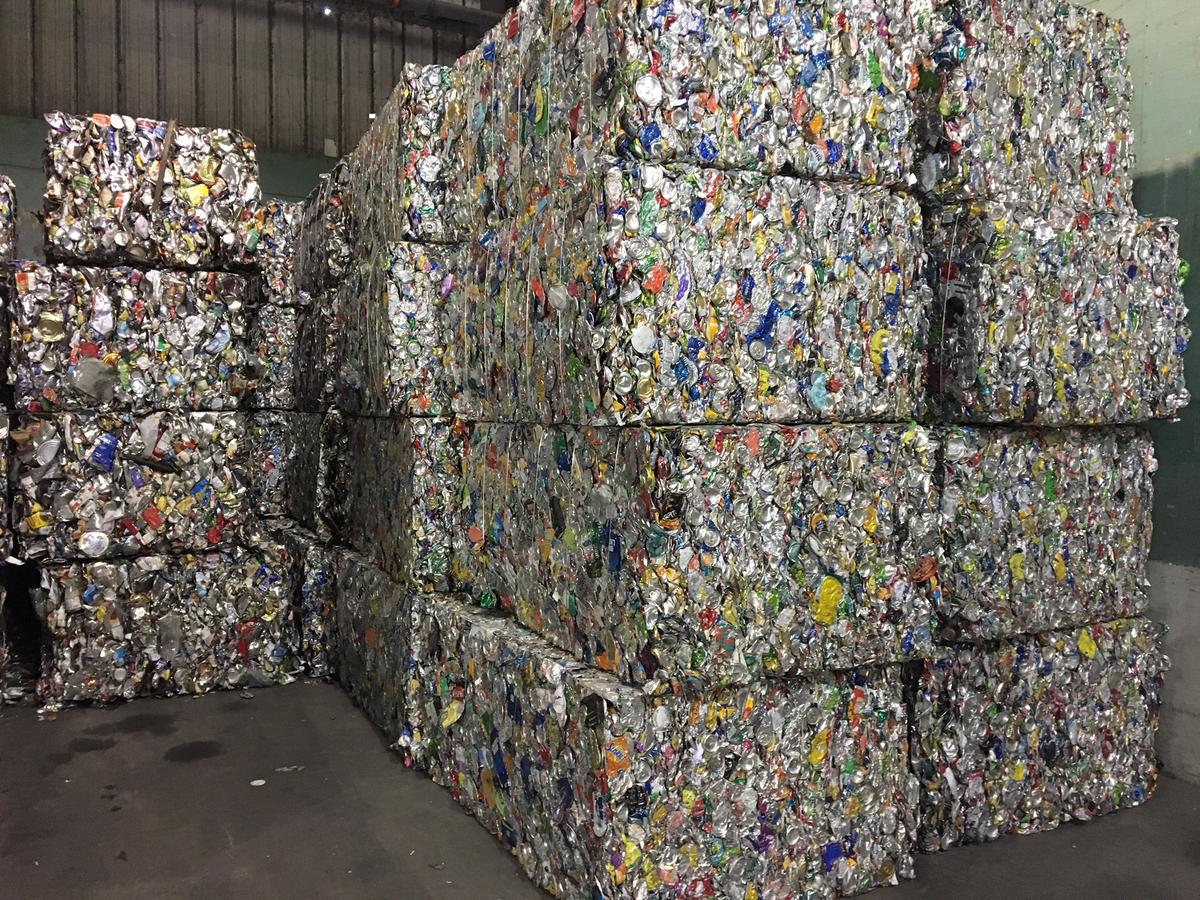Changes In Global Markets Mean Higher Recycling Costs In Vermont

Bales of recyclable aluminum and steel cans ready to be shipped at the Chittenden Solid Waste District. Photo by John Dillon for VPR
Upheavals in global markets will soon be felt in Vermonters’ pocketbooks. The international market for some recyclable material has crashed, and that has forced some municipalities and solid waste companies to start charging for recycling.
Much of the recyclable material in Chittenden County ends up at a building in Williston that houses a “materials recovery facility ” — or MRF. Conveyer belts move tons of paper, cans and bottles, while workers quickly sort through trash that should not have ended up in the recycling bin.
Michele Morris, director of outreach and communications at the Chittenden Solid Waste District, explains that even small amounts of trash – like a plastic grocery bag – in a bunch of mixed paper can gum up the machinery or contaminate the product with stuff a paper buyer doesn’t want. Other material that people think can be recycled is just plain dangerous.
Earlier this week, a small fire broke out at the MRF. While the cause is still unknown, officials suspect somebody tossed something hazardous in their recycling bin.
“You’ll see bins at the feet of the sorters full of stuff that shouldn’t have come here that they’re pulling off the line, like propane canisters and batteries from hand tools. Those are a real problem here,” she said.
Morris and other solid waste officials say the hazards in trash highlight the need for education. People need to know what belongs in a recycling bin and what does not — and they need to get better at reducing how much waste they generate.
“Our first line of defense is for people to reduce the amount of” trash and recycling, Morris said.
The need for education with a focus on waste reduction has gotten even more acute recently as disruptions in global markets have rocked the garbage business.
For years, China was a major market for the vast majority of U.S. recyclable materials. But earlier this year, it cracked down on what it would accept. And it imposed strict standards on contamination – so even something like a plastic bag in a bale full of mixed paper was considered unacceptable.
“We’re talking really about anything that’s not paper,” said Sarah Reeves, the general manager at Chittenden Solid Waste District. “So it could have been an aluminum can, it could have been a plastic bottle cap. It could have strapping. … Anything that wasn’t paper is considered contamination. And it’s the same for plastic and aluminum.”
